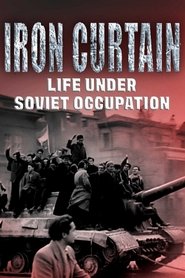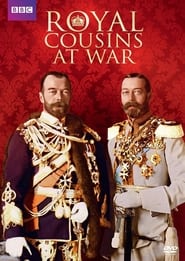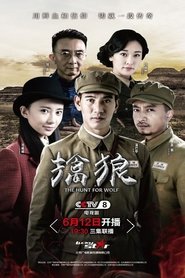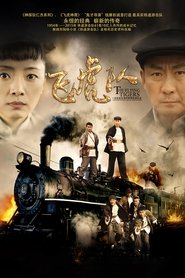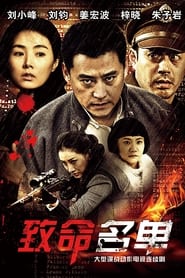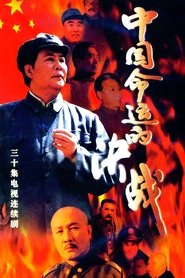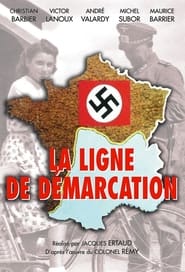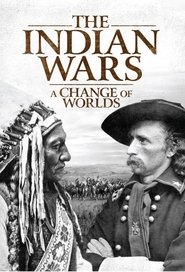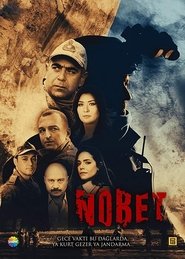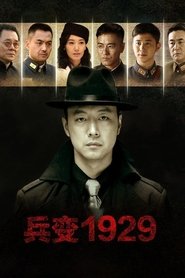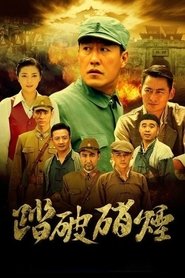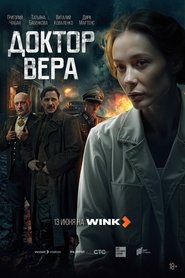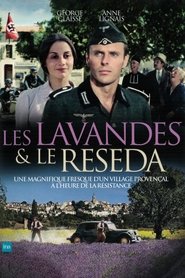Popular War Politics TV Series on Pantaflix - Page 78
-
Iron Curtain: Life Under Soviet Occupation
2024
star 7How did the Soviet Union impose its communist ideology on the countries of Central and Eastern Europe after World War II? The story of how, from 1945 until the construction of the Berlin Wall in 1961, these countries were gradually subjected to the totalitarian Soviet yoke. -
Royal Cousins at War
2014
Royal Cousins at War
2014
star 6.3At the time World War I broke out, the King of England, the Czar of Russia, and the Kaiser of Germany were first cousins. This two-part series looks at the role played by Tsar Nicholas II of Russia, Kaiser Wilhelm II of Germany and King George V of England, and their relationships with each other, in the outbreak of war. Mismanaging their countries and mishandling foreign policy, they failed to adapt to the forces of nationalism and democracy, and so brought tumbling down their own ideal of a Europe governed by the descendants of Queen Victoria. While it was war that delivered the final blow, this fascinating series shows how the problems had set in much earlier. A two part miniseries. -
擒狼
2017
-
血战松毛岭
2022
血战松毛岭
2022
Based on the true events of the battle of Songmaoling in 1934, the drama follows the determination of young soldiers as they defend Songmaoling for seven days and nights. -
Railway Guerrilla
2015
-
过界
2017
过界
2017
-
致命名单
2013
致命名单
2013
-
中国命运的决战
1999
中国命运的决战
1999
-
The Indian Wars - A Change of Worlds
2016
The year 1540 was a crucial turning point in American history. The Great Indian Wars were incited by Francisco Vazquez de Coronado when his expedition to the Great Plains launched the inevitable 350-year struggle between the white man and the American Indians. From that point forward, the series of battles between the military and civilian forces of the United States and the native American Indians began when blood was shed and ultimately tens of thousands of lives were lost on both sides. The Battle of Tippicanoe, the Battle of Horseshoe Band, all three Seminole Wars and the Battle of Little Big Horn were some of the most important conflicts that led up to the last massacre, the Battle of Wounded Knee, where America's landscape would be forever changed! -
Hitler's Power
2023
-
Nöbet
2019
-
Guns Germs & Steel
2005
Guns Germs & Steel
2005
star 6.4A PBS documentary concerning Jared Diamond's theory on why there is such disparity between those who have advanced technology and those who still live primitively. He argues it is due to the acquisition of guns and steel and the changes brought about by germs. -
兵变1929
2015
兵变1929
2015
-
Through the Smoke
2015
Through the Smoke
2015
-
The Inner Circle
2019
The Inner Circle
2019
star 6The day before Almedal Week begins, Minister of Business Affairs David Ehrling receives a call from Prime Minister Elvira Kropp. She explains that she intends to resign and that in connection with a press conference she wants to "point out" David as a possible successor. David will stop at nothing to become Prime Minister. But is it a price worth paying? -
Doktor Vera
2025
Doktor Vera
2025
In 1941, Vera Treshnikova was the only doctor left in the city. Her hospital was under 24-hour surveillance by the Gestapo. In order to continue performing her medical duty, Vera pretended to collaborate with the fascists. The townspeople condemned her, but did not know that the girl was hiding a partisan movement center in the hospital. -
Atatürk 1881-1919
2024
Atatürk 1881-1919
2024
star 10The early life story of Veteran Mustafa Kemal Atatürk, the founding father of the Republic of Turkey and its first President, supreme commander of Turkish War of Independence, and revolutionary statesman. -
Well done
2012
 Netflix
Netflix
 Amazon Prime Video
Amazon Prime Video
 Apple iTunes
Apple iTunes
 Apple TV Plus
Apple TV Plus
 Disney Plus
Disney Plus
 Google Play Movies
Google Play Movies
 Paramount Plus
Paramount Plus
 Hulu
Hulu
 HBO Max
HBO Max
 YouTube
YouTube
 fuboTV
fuboTV
 Peacock
Peacock
 Peacock Premium
Peacock Premium
 Amazon Video
Amazon Video
 The Roku Channel
The Roku Channel
 AMC+
AMC+
 Kocowa
Kocowa
 Hoopla
Hoopla
 The CW
The CW
 Vudu
Vudu
 Starz
Starz
 Showtime
Showtime
 PBS
PBS
 Pantaflix
Pantaflix
 FXNow
FXNow
 Tubi TV
Tubi TV
 Kanopy
Kanopy
 Comedy Central
Comedy Central
 Crunchyroll
Crunchyroll
 Microsoft Store
Microsoft Store
 Redbox
Redbox
 Sun Nxt
Sun Nxt
 ABC
ABC
 DIRECTV
DIRECTV
 Crackle
Crackle
 Fandor
Fandor
 Plex
Plex
